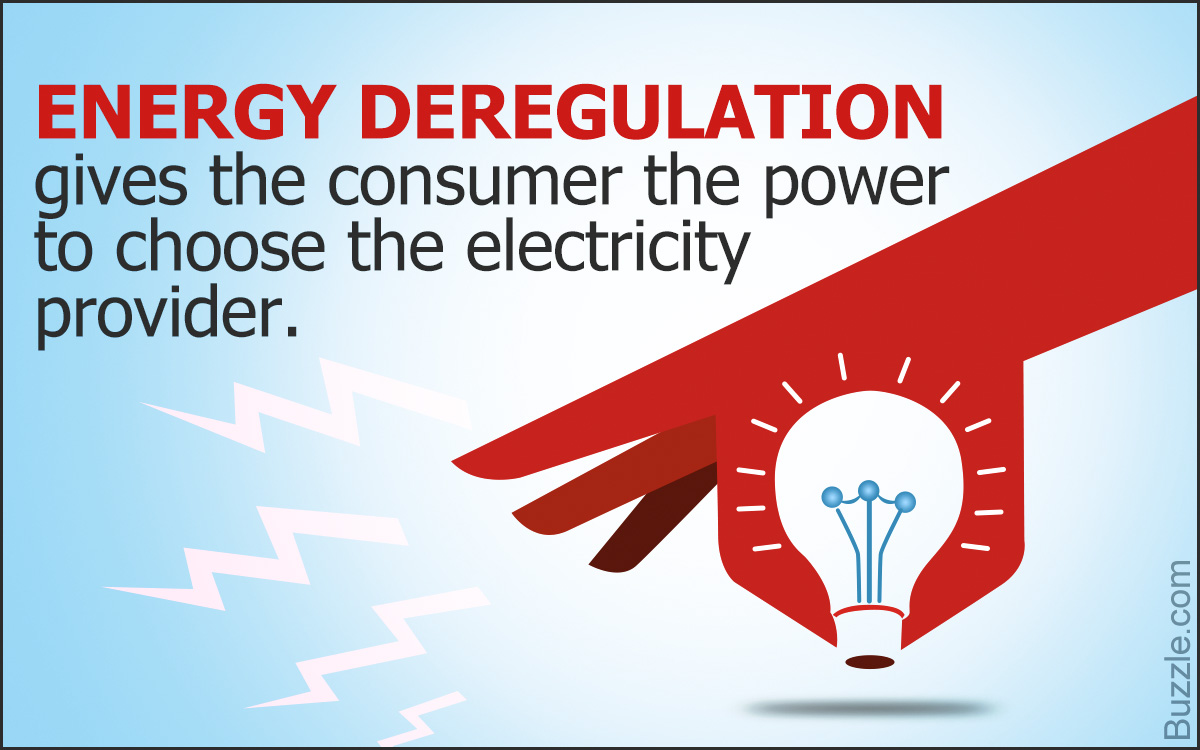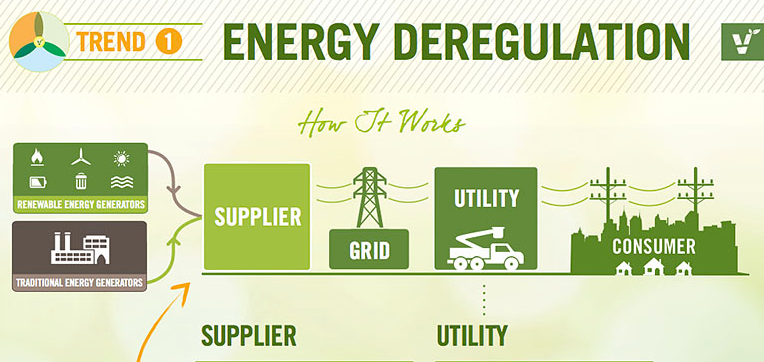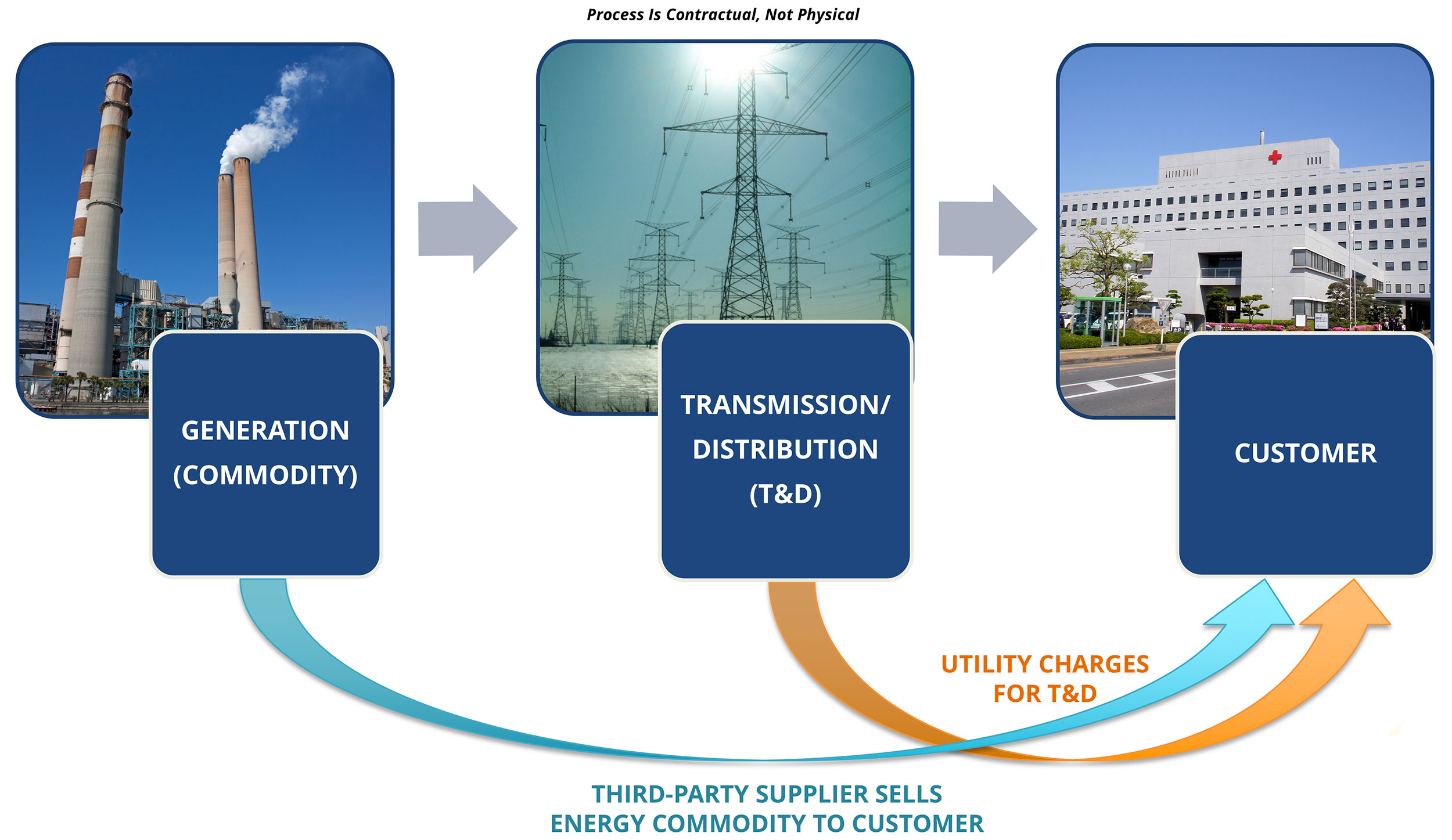Energy Deregulation Explanation :Energy deregulation, also known as energy liberalization, refers to the process of removing government regulations and restrictions on the generation, transmission, and distribution of energy, particularly electricity and natural gas.
Traditionally, energy providers were vertically integrated monopolies, meaning that they controlled all aspects of energy production, transmission, and distribution within a particular geographic area. Energy deregulation, however, allows for greater competition in the energy market by opening up the industry to independent energy providers who can sell energy directly to consumers.
This means that consumers in deregulated energy markets have the ability to choose their energy provider and can shop around for the best rates and services. Deregulation also promotes innovation and investment in new energy technologies, as independent providers seek to differentiate themselves from their competitors and offer new and innovative energy solutions.

Energy deregulation has been implemented in varying degrees in many countries, including the United States, Canada, and many countries in Europe. While it has its advantages, there are also concerns about the potential for market manipulation and price volatility that may come with increased competition.
How to invest energy deregulation
Investing in energy deregulation can take various forms, depending on your investment goals, risk tolerance, and available capital. Here are some potential strategies:
Invest in energy companies: With energy deregulation, there may be more opportunities for independent energy providers to enter the market and compete with traditional energy companies. You could consider investing in these companies if they appear to have solid business models and growth potential.
Invest in renewable energy: Deregulation may lead to more investment in renewable energy sources, as independent providers seek to differentiate themselves and appeal to consumers who are interested in green energy. You could consider investing in renewable energy companies or funds that focus on clean energy sources such as wind, solar, or hydro power.

Invest in energy infrastructure: Deregulation may lead to the development of new energy infrastructure, such as transmission lines or pipelines, to bring energy from different sources to consumers. You could consider investing in companies or funds that focus on energy infrastructure development.
Invest in energy trading: With deregulation, there may be more opportunities for energy trading, where companies buy and sell energy on the open market. You could consider investing in companies or funds that specialize in energy trading or have a significant energy trading component to their business.
As with any investment, it’s important to do your due diligence and consider the risks and potential returns before making any investment decisions. It may be helpful to consult with a financial advisor who can help you evaluate potential investments and develop a personalized investment strategy.
is it to invest in energy deregulation
As with any investment, there are risks and potential rewards associated with investing in energy deregulation. Here are some factors to consider:
Pros:
Greater competition in the energy market may lead to lower prices for consumers, which could benefit energy companies that can compete effectively.
Deregulation may lead to increased investment in renewable energy and energy infrastructure, which could create opportunities for investors.
Independent energy providers may be more nimble and innovative than traditional energy companies, which could lead to greater potential for growth and higher returns.
Cons:
Deregulation may increase price volatility and market manipulation, which could result in losses for investors.
The increased competition may make it harder for some energy companies to survive, which could result in lower returns for investors in those companies.

The regulatory environment for energy companies may be uncertain and subject to change, which could affect the value of investments.
It’s important to carefully evaluate the potential risks and rewards before investing in any particular energy company or investment vehicle.
You may want to consider working with a financial advisor who has experience in the energy sector and can help you make informed investment decisions. Additionally, diversification across different types of energy investments may help mitigate some of the risks associated with investing in the energy sector.